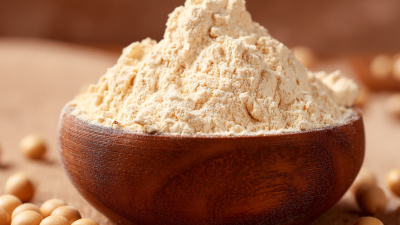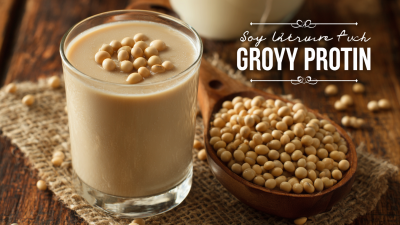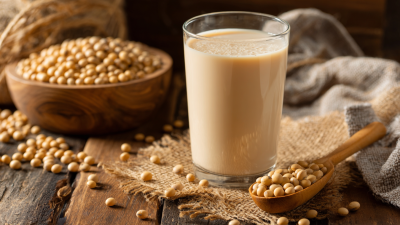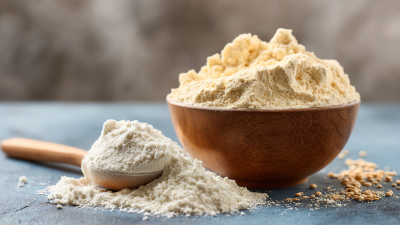Incorporating Soy Protein into your daily diet is not only a culinary choice but a health imperative backed by scientific research. Studies suggest that soy protein can play a crucial role in maintaining overall health, as it has been associated with reduced risks of heart disease, lower cholesterol levels, and improved muscle health. According to the American Heart Association, incorporating plant-based proteins, particularly soy, can significantly improve cardiovascular health and support weight management. Moreover, research published in the Journal of Nutrition reveals that consuming soy protein can enhance muscle recovery and growth, making it particularly beneficial for athletes and active individuals. As more people embrace plant-based diets, understanding how to effectively integrate Soy Protein into daily meals becomes vital for maximizing its health benefits and achieving optimal well-being.
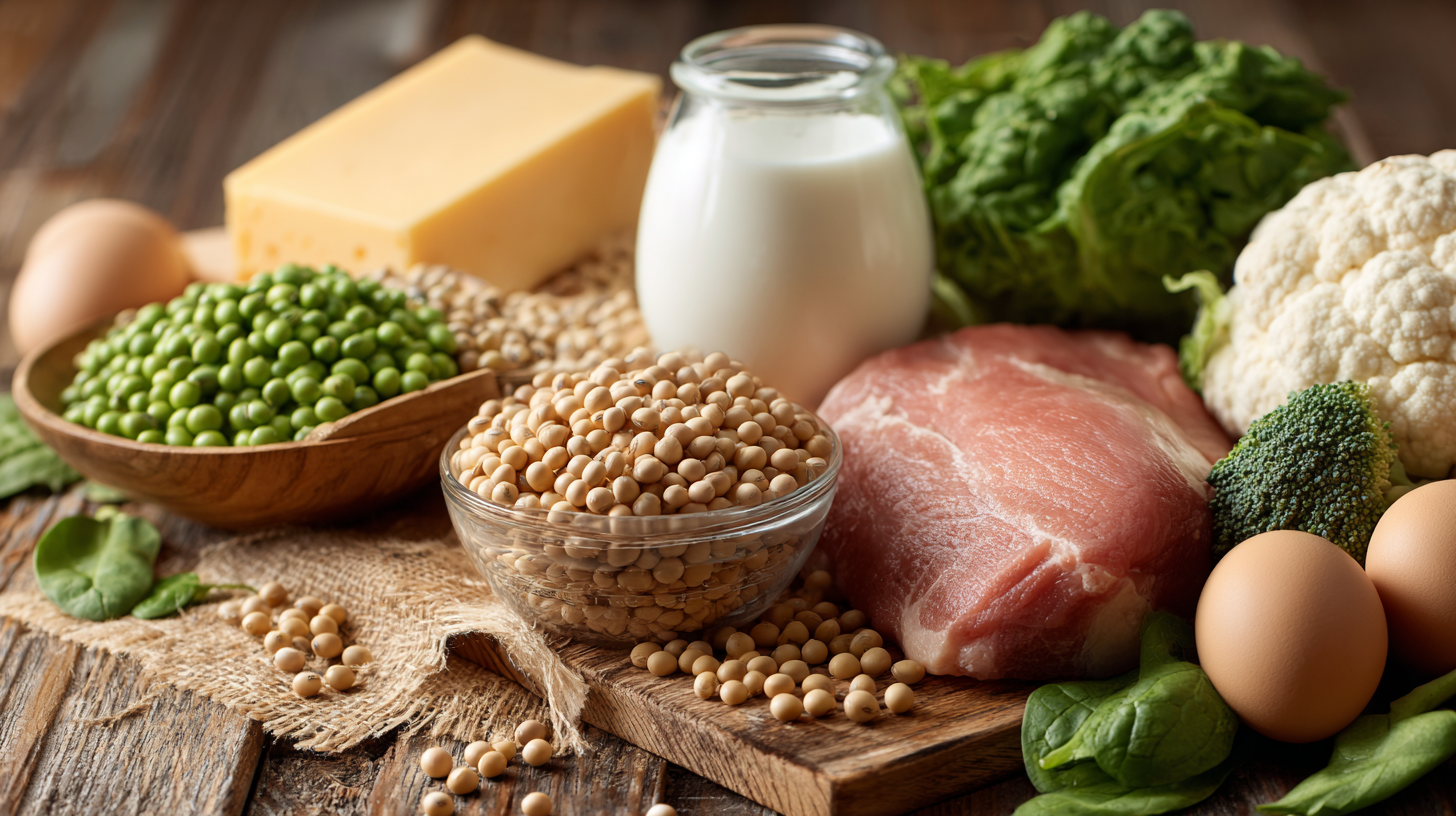
Soy protein is gaining recognition for its wide-ranging health benefits, making it an excellent addition to daily nutrition. Research published by the American Journal of Clinical Nutrition highlights that incorporating soy protein can significantly lower LDL cholesterol levels, reducing the risk of cardiovascular disease. In fact, studies indicate that a daily intake of 25 grams of soy protein may decrease cholesterol levels by 3-5%, benefiting heart health and overall metabolic function.
Additionally, soy protein is a complete protein source, providing all essential amino acids necessary for muscle maintenance and recovery. According to the USDA Nutrient Database, 100 grams of tofu, a popular soy protein source, contains approximately 8 grams of protein alongside vital nutrients like calcium and iron. The incorporation of soy protein can support muscle health, especially in individuals engaged in regular physical activity, making it an ideal dietary choice for athletes and active individuals alike. With these compelling benefits, integrating soy protein into your meals can play a crucial role in achieving optimal health.
This chart displays the recommended daily intake of soy protein for different age groups, emphasizing its importance for overall health and nutrition.
Incorporating soy protein into your breakfast meals is an excellent way to start your day with a nutrient boost. Research shows that soy protein can significantly improve overall health due to its high-quality protein content and various health benefits. According to the Soy Protein Council, incorporating soy protein into your diet can help lower cholesterol levels, contributing to a decreased risk of heart disease. A simple way to include soy protein in your breakfast is by adding edamame to your morning smoothie or tossing it into a savory breakfast bowl with quinoa and vegetables.
Another delicious option is to prepare tofu scramble as a hearty alternative to traditional scrambled eggs. Tofu is a versatile source of soy protein that can be flavored with spices and vegetables for a satisfying meal. The American Journal of Clinical Nutrition reports that replacing animal proteins with plant-based options like soy can improve dietary diversity and nutrient intake. Additionally, soy yogurt can serve as a creamy base for parfaits or oatmeal, providing a great source of protein and probiotics to enhance digestive health. By integrating these simple soy-based dishes into your breakfast routine, you can effectively boost your daily protein intake while enjoying tasty meals.
Incorporating soy protein into your lunch can be a delicious and nutritious way to enhance your overall health. Research indicates that soy protein can lower cholesterol levels and reduce the risk of heart disease. According to a study published in the "Journal of the American College of Nutrition", incorporating just 25 grams of soy protein daily can lead to a significant reduction in total cholesterol. This makes it an ideal choice for those looking to improve their heart health while enjoying balanced meals.
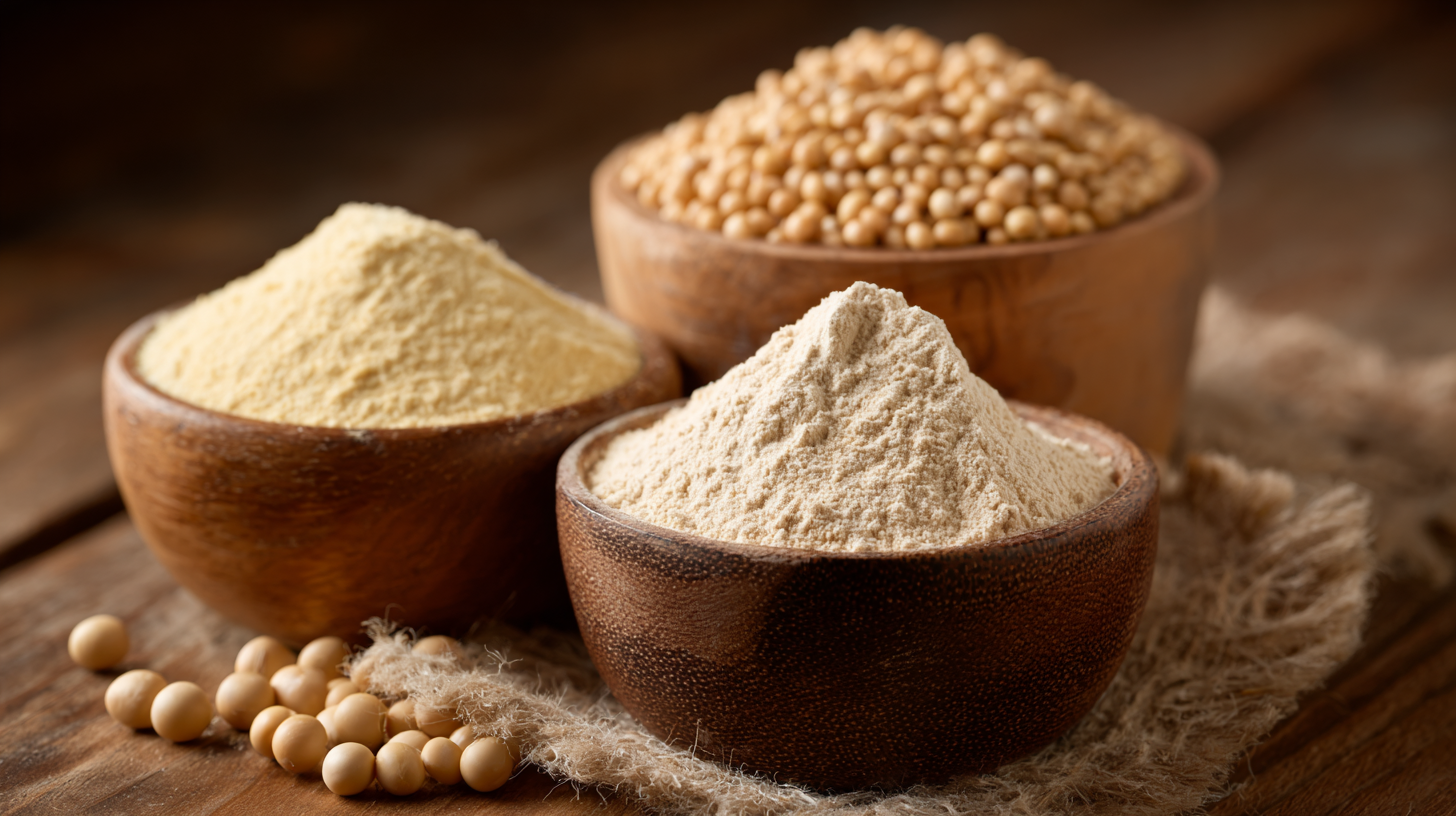
One creative lunch idea is a stir-fried tofu and vegetable bowl. Tofu, a versatile soy product, can be sautéed with a variety of fresh vegetables such as bell peppers, broccoli, and snap peas, delivering essential vitamins and minerals alongside your protein intake. Top it with a soy sauce or teriyaki glaze for added flavor.
Another option is a nutrient-packed salad featuring edamame, which is loaded with protein and fiber. Tossed with mixed greens, cherry tomatoes, cucumber, and a sesame dressing, this salad is not only satisfying but also contributes to your daily soy protein goals. Incorporating such lunch ideas can facilitate optimal health while enjoying the rich flavors that soy products offer.
Incorporating soy protein into your daily diet can be as simple as finding delicious snacks that satisfy your cravings while promoting optimal health. Soy snacks can help you stay full and energized throughout the day. Here are some tasty options to consider:
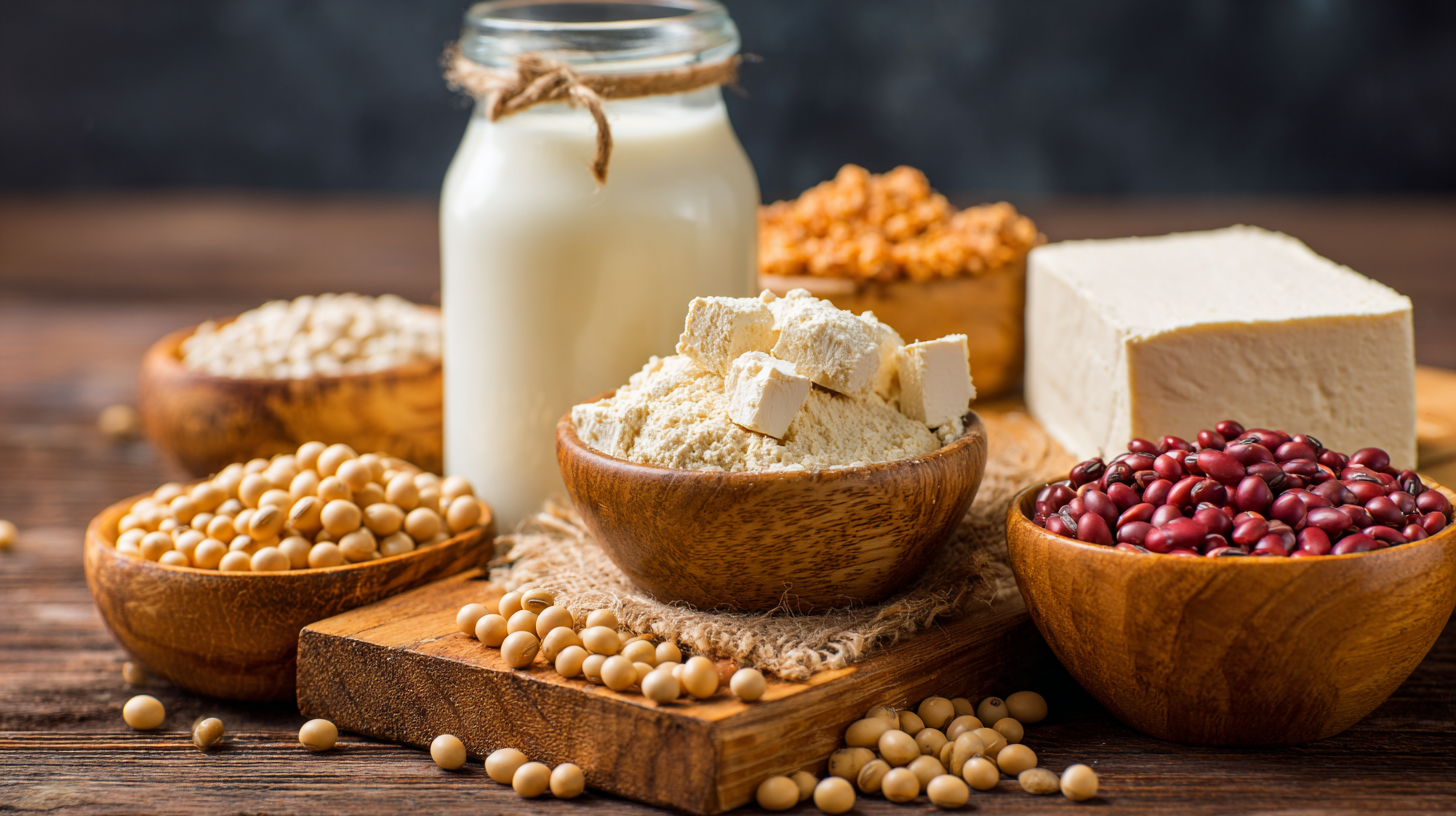
Edamame is a fantastic choice; these young soybeans are rich in protein and fiber. You can enjoy them steamed with a sprinkle of sea salt or toss them into salads for an extra protein boost. Tofu can also be transformed into a variety of snacks. Try marinated tofu bites grilled on skewers or blended into smoothies for a creamy texture.
For something sweeter, consider soy yogurt or protein bars made from soy isolate. They are convenient and can curb those sugar cravings without compromising your health. Additionally, look for roasted soy nuts, which provide a crunchy alternative to most snack foods.
Tips: To enhance your snacking experience, pair soy snacks with fresh fruits or vegetables for added nutrients. Keep portion sizes in check to avoid overindulging, and explore different flavors and textures by incorporating soy protein into various recipes. By mixing it up, you’ll keep healthy snacking exciting!
Incorporating soy protein into your dinner recipes is an excellent way to enhance your meals while benefiting from its rich nutritional profile. Research shows that soy protein can be a satisfying meat substitute without compromising flavor or texture. A study published by the American Journal of Clinical Nutrition indicates that diets high in plant-based proteins, including soy, are associated with lower cholesterol levels and reduced risk of heart disease. This makes soy a heart-healthy alternative for those looking to reduce their meat intake.
When substituting soy protein for meat, versatility is key. Products such as tofu, tempeh, and textured vegetable protein (TVP) can be seamlessly integrated into various dishes. For instance, marinated and grilled tofu can replace chicken in stir-fries or salads, while tempeh can be crumbled and used as a ground meat substitute in tacos or spaghetti sauce. According to the Nutrition Journal, including just 25 grams of soy protein daily can significantly improve muscle maintenance and overall health, making it an ideal choice for dinners aimed at wellness and vitality. Embracing soy protein not only contributes to a balanced diet but also supports a sustainable food system by reducing reliance on animal products.
